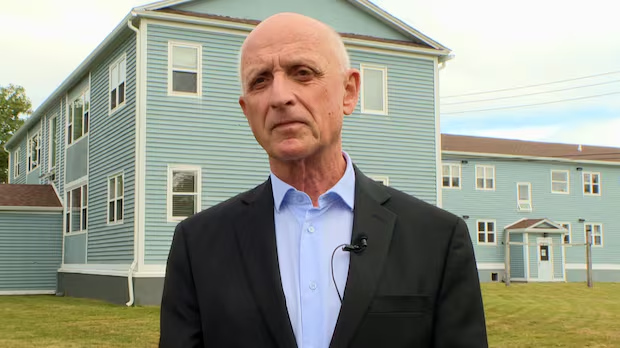Consumer advocate warns of ‘capital cost crisis’ as PUB assesses Newfoundland Power application

Listen to this article
Estimated 3 minutes
The audio version of this article is generated by text-to-speech, a technology based on artificial intelligence.
Newfoundland and Labrador’s consumer advocate, Dennis Browne, is warning of a “capital cost crisis” looming over the province’s power grid, and that it could potentially impact ratepayers.
In a submission to the Public Utilities Board on Nov. 6, Browne wrote that the request for new expenditures from Newfoundland Power needs to be put under the microscope.
“The Island Interconnected System is facing a capital cost crisis,” Browne wrote.
“This looming capital cost crisis reflects Newfoundland and Labrador Hydro’s past decisions and future plans. It was not caused by [Newfoundland Power]. However, there are actions that [it] can take to help avoid or mitigate the potentially devastating costs for its customers.”
The Island Interconnected System (IIS) refers to the province’s power grid.
In June, Newfoundland Power submitted an application to the PUB that sought $140 million in new expenditures from 2026 to 2028.
Power rates also rose by an average of seven per cent on July 1.
Browne wrote he believes ratepayers deserve to know why an expenditure increase is warranted, and how they plan to deliver power at the lowest possible cost while maintaining reliability and environmental responsibility.
He wrote that all of that spending, paired with N.L. Hydro seeking billions for new power capacity while ratepayers continue to feel the impact of cost overruns at Muskrat Falls, would be “an enormous burden” for consumers.
Newfoundland Power outlined a request for $140 million in new expenditures in an application to the Public Utilities Board in June. (CBC)
The 20-page submission also comes with seven recommendations.
One recommendation advises against the approval of projects at the Mount Carmel Pond Dam, with Browne writing they’d cost too much money for minimal positive impact. Another calls to reject a proposed customer correspondence modernization program costing around $1.95 million — since there’s no evidence that ratepayers have asked for it.
Other recommendations call on Newfoundland Power to improve its own planning.
Browne wants the company to create a strategic distribution plan to ensure the corporation meets the burden of proof requirement for more expenditures and the finalization of a capital budget application that requires utilities to quantify the risk of new projects.
Additionally, Browne wrote that Newfoundland Power needs to make the move to smart metres — ideally by the end of 2026.
Eight other provinces have either made the switch to smart metres or plan to, he wrote, and said Newfoundland Power lacks a proper plan for something that could likely lower rates for consumers.
Download our free CBC News app to sign up for push alerts for CBC Newfoundland and Labrador. Sign up for our daily headlines newsletter here. Click here to visit our landing page.




